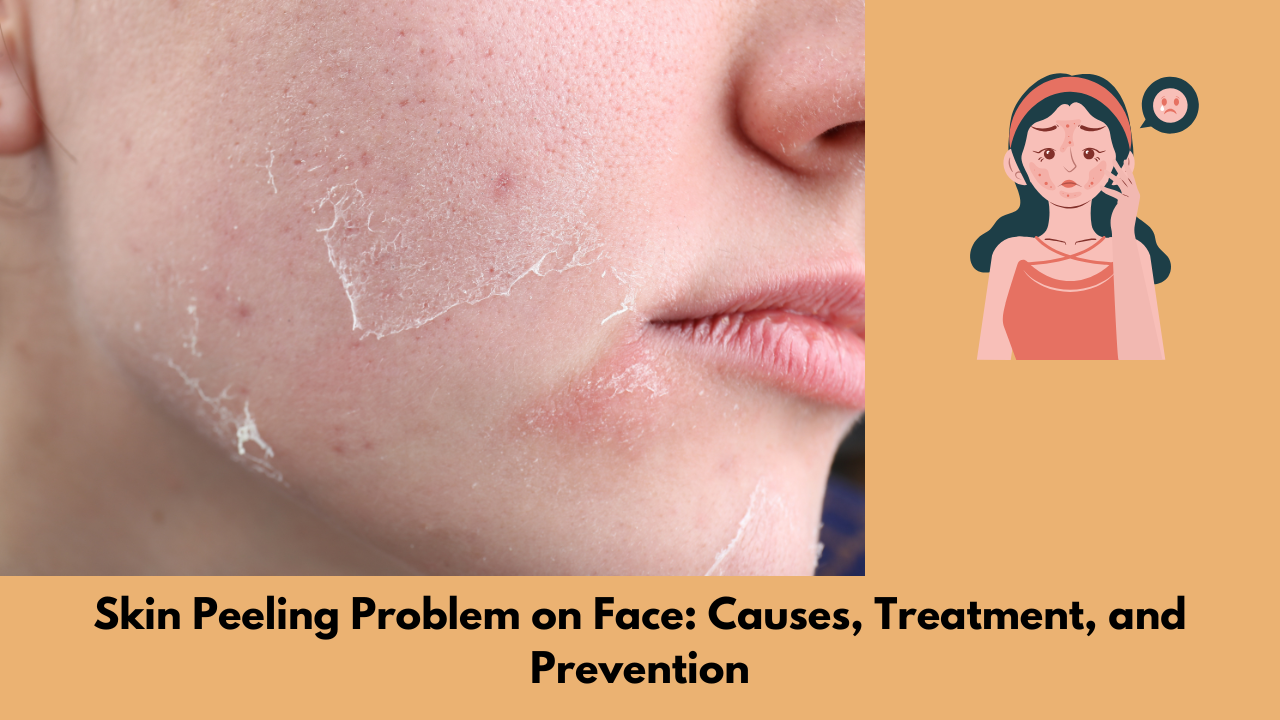
Introduction
Skin peeling on the face can be both an uncomfortable and embarrassing issue. It can occur due to various reasons, including environmental factors, skin conditions, or underlying health issues. Understanding the causes, treatments, and preventive measures can help manage and reduce skin peeling effectively.
Causes of Skin Peeling on Face
Dry Skin – Lack of moisture in the skin can lead to flaking and peeling, especially in cold or dry weather conditions.
Sunburn – Overexposure to the sun damages the skin, causing it to peel as it heals.
Allergic Reactions – Certain skincare products, cosmetics, or medications can trigger an allergic response, leading to peeling.
Skin Conditions – Conditions like eczema, psoriasis, and seborrheic dermatitis can cause skin flaking and peeling.
Chemical Peels or Harsh Exfoliation – Overuse of exfoliants, retinoids, or chemical peels can lead to excessive skin shedding.
Infections – Fungal or bacterial infections may contribute to skin irritation and peeling.
Vitamin Deficiencies – Lack of essential vitamins, such as vitamin A, C, or E, can lead to skin problems, including peeling.
Treatment Options
Moisturizing Regularly – Use a hydrating moisturizer with ingredients like hyaluronic acid, glycerin, or ceramides to keep the skin hydrated.
Aloe Vera Gel – Aloe vera has soothing properties that can reduce inflammation and promote healing.
Sunscreen Use – Applying a broad-spectrum sunscreen (SPF 30 or higher) can protect the skin from sun damage.
Gentle Cleansers – Avoid harsh soaps or face washes that strip the skin of natural oils.
Oatmeal Masks – Oatmeal has anti-inflammatory properties and helps in soothing irritated skin.
Hydration – Drinking plenty of water ensures your skin stays hydrated from within.
Avoid Over-Exfoliation – Reduce the use of strong exfoliating products if your skin is peeling.
Medications – If peeling is due to a medical condition, consult a dermatologist for appropriate treatment, such as medicated creams or antifungal treatments.
Prevention Tips
Use a Humidifier – This helps maintain moisture in the air and prevents skin dryness.
Choose Gentle Skincare Products – Avoid alcohol-based or fragranced products that may irritate sensitive skin.
Balanced Diet – Consume foods rich in vitamins and omega-3 fatty acids to nourish your skin.
Avoid Long Hot Showers – Hot water can strip natural oils from your skin, making it drier.
Regular Skincare Routine – Establish a routine that includes cleansing, moisturizing, and sun protection.





